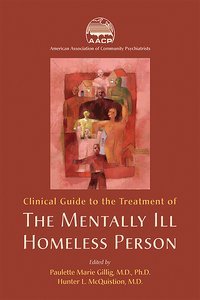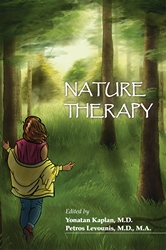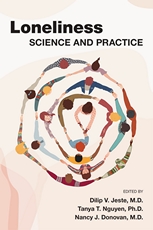Clinical Guide to the Treatment of the Mentally Ill Homeless Person
View Pricing
Description
A case-based, clinical guide applicable to a variety of settings, this book offers evidence-based expert advice on the difficult challenges inherent in working with underserved homeless populations. The American Association of Community Psychiatrists' Clinical Guide to the Treatment of the Mentally Ill Homeless Person is a concise, practical work that gives busy clinicians the information they need; it not only is more up-to-date than existing publications, but also offers case- and site-based content that provides more hands-on, practical advice. Written by clinicians, for clinicians, it offers approaches to therapy and rehabilitation from the vantage point of the treatment environment, from street to housing and everything in between.
The book reflects approaches to the clinical care of homeless people refined over two decades, building not only on the work of academic research but more importantly on the firsthand experience of clinicians. Its organization by treatment setting or specific subpopulation allows readers quick access to the chapters most relevant to their work. The first five chapters follow a sequence of naturalistic settings—such as shelters and the work of Assertive Community Treatment Teams—that demonstrate a model of engagement, intensive care, and ongoing rehabilitation. Subsequent chapters define specific scenarios that depict patients at various points on the engagement-rehabilitation continuum. Each chapter contains a clinical case example; guides to differential diagnosis, treatment planning, and accessing entitlements; and a flow chart for rehabilitation, including opportunities for student/resident or community involvement. The book emphasizes:
- A real-world orientation that provides a nuts-and-bolts approach to such cases as families, homeless children, veterans—even individuals in rural settings.
- Cases that enable readers to follow the progress of individuals as they progress through the network of care.
- The importance of Assertive Community Treatment and housing first models of rehabilitation.
- Data supporting the importance of Critical Time Intervention, particularly with regard to homeless families.
- Examples of clinical interviewing techniques for engagement and treatment of challenging individuals who are being seen in community settings. These illustrated techniques can be incorporated into educational curricula.
This is an indispensable resource for any mental health professional working with homeless populations and is also useful for medical students' clinical rotation in community psychiatric settings. Its examples of clinically engaging the homeless person are equally instructive for teaching interviewing skills to any professionals—whether in law enforcement, social work, substance abuse treatment, or the clergy—who encounter these forgotten members of society.
Contents
- Contributors
- Acknowledgments
- Foreword
- Chapter 1. Mental illness and homelessness: an introduction
- Chapter 2. General concepts of outreach and engagement
- Chapter 3. Single adults in shelters
- Chapter 4. Families in shelters
- Chapter 5. Assertive community treatment
- Chapter 6. Housing
- Chapter 7. Mobile crisis teams
- Chapter 8. Psychiatric emergency services
- Chapter 9. Psychiatric inpatient settings
- Chapter 10. Primary care settings
- Chapter 11. Homeless children
- Chapter 12. Jails and prisons
- Chapter 13. Homeless veterans
- Chapter 14. Rural settings
- Afterword
- Index
Contributors
- Paulette Marie Gillig, M.D., Ph.D. (editor)
Hunter L. McQuistion, M.D. (editor)
Ralph Aquila, M.D.
Brian D. Bronson, M.D.
Florence Coleman, M.D.
Jennifer Dempster, L.P.C.C., L.I.C.D.C.
Lisa Dixon, M.D.
Neil Falk, M.D.
Alan Felix, M.D.
Avrim Fishkind, M.D.
Julie P. Gentile, M.D.
Stephen M. Goldfinger, M.D.
Ann Hackman, M.D.
John Kelleher
H. Richard Lamb, M.D.
Ann Morrison, M.D.
David Nardacci, M.D.
Anthony T. Ng, M.D.
Fred Osher, M.D.
Elizabeth Oudens, M.D.
Anne M. Piette, L.M.S.W.
Erik Roskes, M.D.
Judith Samuels, Ph.D.
Randie Schacter, D.O.
Manoj Shah, M.D.
Thomas Sweet
Scott Zeller, M.D.
About the Authors
Paulette Marie Gillig, M.D., is Professor in the Department of Psychiatry at Boonshoft School of Medicine, Wright State University, Dayton, Ohio.
Hunter L. McQuistion, M.D., is Adjunct Associate Clinical Professor in the Department of Psychiatry at The Mount Sinai School of Medicine, New York, New York.
Related Products
Carousel Control - items will scroll by tabbing through them, otherwise arrows can be used to scroll one item at a time








